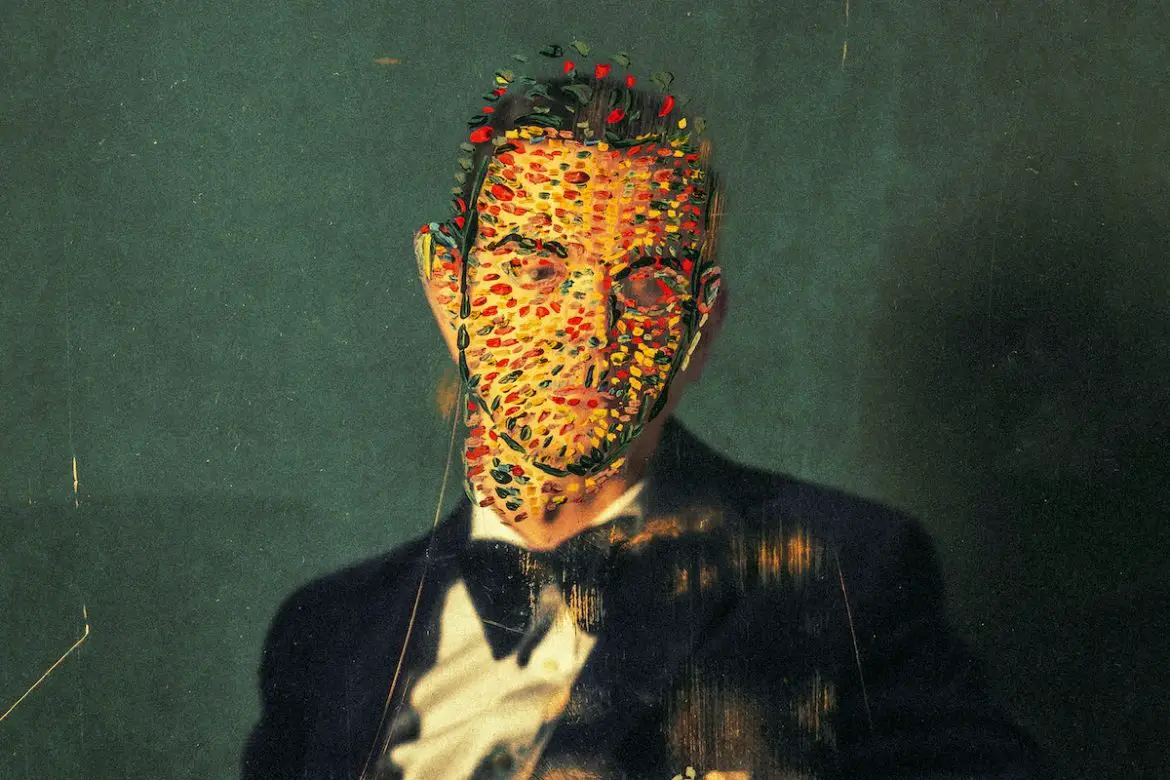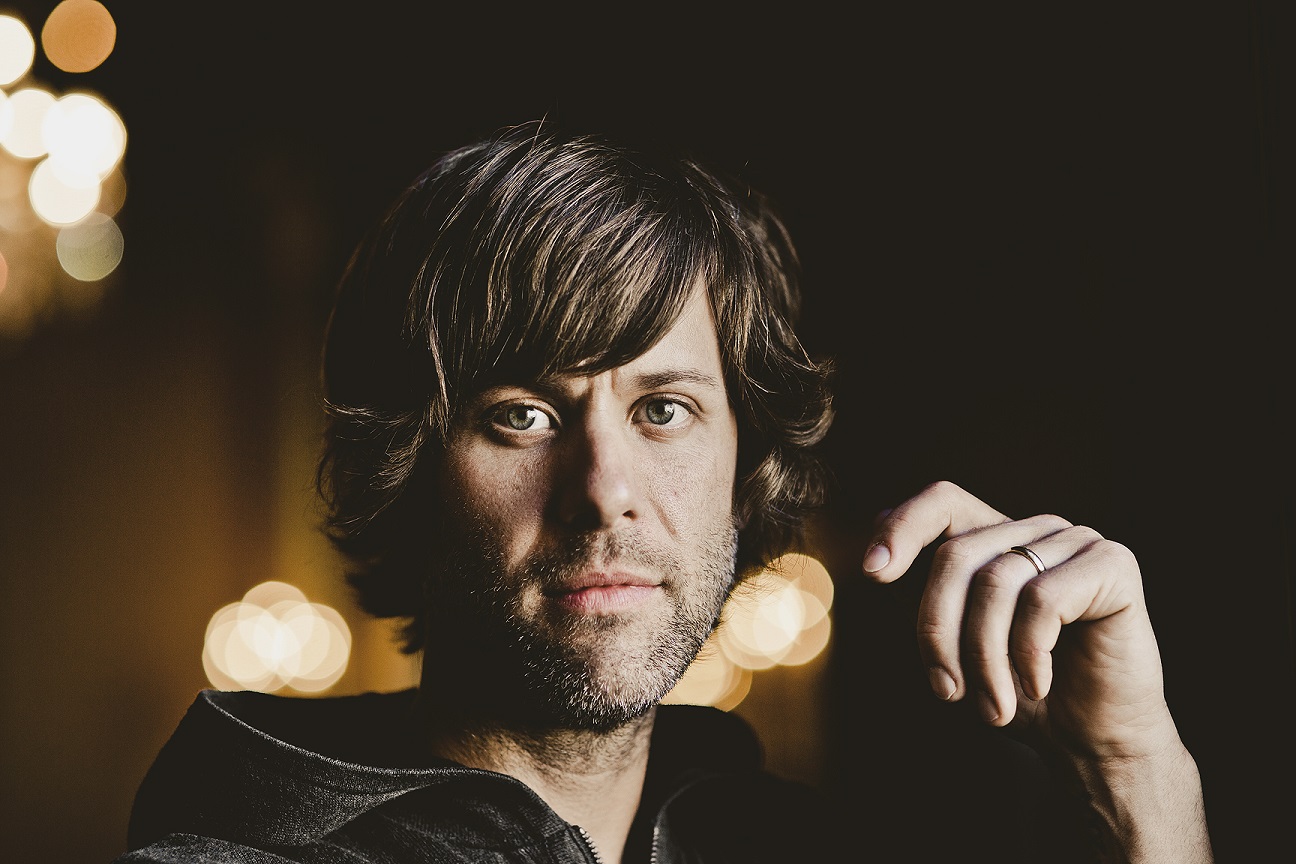Tom Iansek speaks to Atwood Magazine about embracing silence and space in his music, using songwriting as a kind of therapy, and all the vulnerability and emotion that went into #1 Dads’ breathtaking album, ‘Golden Repair’.
Stream: “Freedom Fighter” – #1 Dads
The more I go deeper into music, songwriting, and even just in living my life, the more I feel there is a profound power in silence; that it’s like the place where all sound originates.
A gorgeous record full of warm space, tender melodies, and humbling introspection, #1 Dads’ Golden Repair is as timely as it is timeless: A beautiful, stunning album that pre-dates the pandemic, yet so perfectly belongs with the isolation, anguish, inner turmoil, and raw emotions of 2020 and 2021. This is music that makes you feel: Music that carries with it a striking meaning, depth, and resonant power.
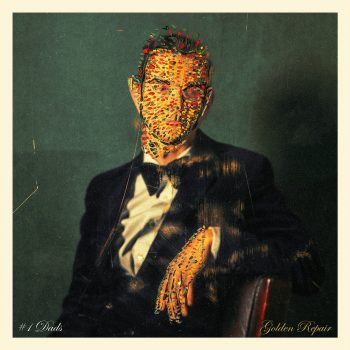
Falling on my knees
Throw my head back as I land
I’m on the pages
All my blank thoughts are with me
I’m a song for all the ages
Unrequited love’s my favourite
Gets me dancing on the stages
But only if I’m thinking of you
You breathe into my lungs
I hold it in and breathe out colour
Breathe out fire
Heaven lives, or so I’m told
Lives for those who cross the mile
But I am only ever too late
And silence is the perfect sound
Whenever you ask, I’ll say
Released March 6, 2020, Golden Repair is one of the year’s hidden gems – an album that will live on long after this moment in time has passed. Big Scary frontman Tom Iansek weaves a wondrous tapestry of classic singer/songwriter and indie folk sounds into his third solo album, dazzling through wondrous piano balladry and equally tender guitar songs that elevate his already haunting lyricism to stirring heights. The result is a stirring, stunning, and deeply moving soundtrack to introspection, connection, and self-discovery.
A critically acclaimed Melbourne-based artist whose repertoire spans the acclaimed indie bands Big Scary and No Mono, Tom Iansek is a singular figure within Australia and well beyond. He released his first #1 Dads album, Man of Leisure, in 2011 – and while it was once a definitive side project, Iansek says it has since become his primary focus. “I now feel that #1Dads is the main vessel for my creativity and self-expression whereas it used to be Big Scary,” he tells Atwood Magazine. “I feel #1Dads is a better fit for this as the project is just myself (creatively speaking); it also means that Big Scary can now be more of a collaborative effort, which makes sense seeing as there is more than myself in that band.”
“The project has had a beautiful innocence for me in its trajectory,” he says of #1 Dads. “It started as a way to capture my creative overflow, the ideas that Big Scary didn’t need or couldn’t do anything with. I initially had no hope or dreams for the project, which can be a very liberating thing. The second album (2014’s About Face) had much of this energy where I felt very free to create whatever without much worry whether it was good or bad; the energy of creating for the fun of it. Releasing the music to the outside world was mostly motivated by the fun of it and so everything from then felt like a complete bonus. I more recently decided that I should take on the project in a more committed way (with the release of Golden Repair), and this changed the scope of the project with it somewhat… but I have strived to keep the innocent naissance of the project central to how I work within it.”
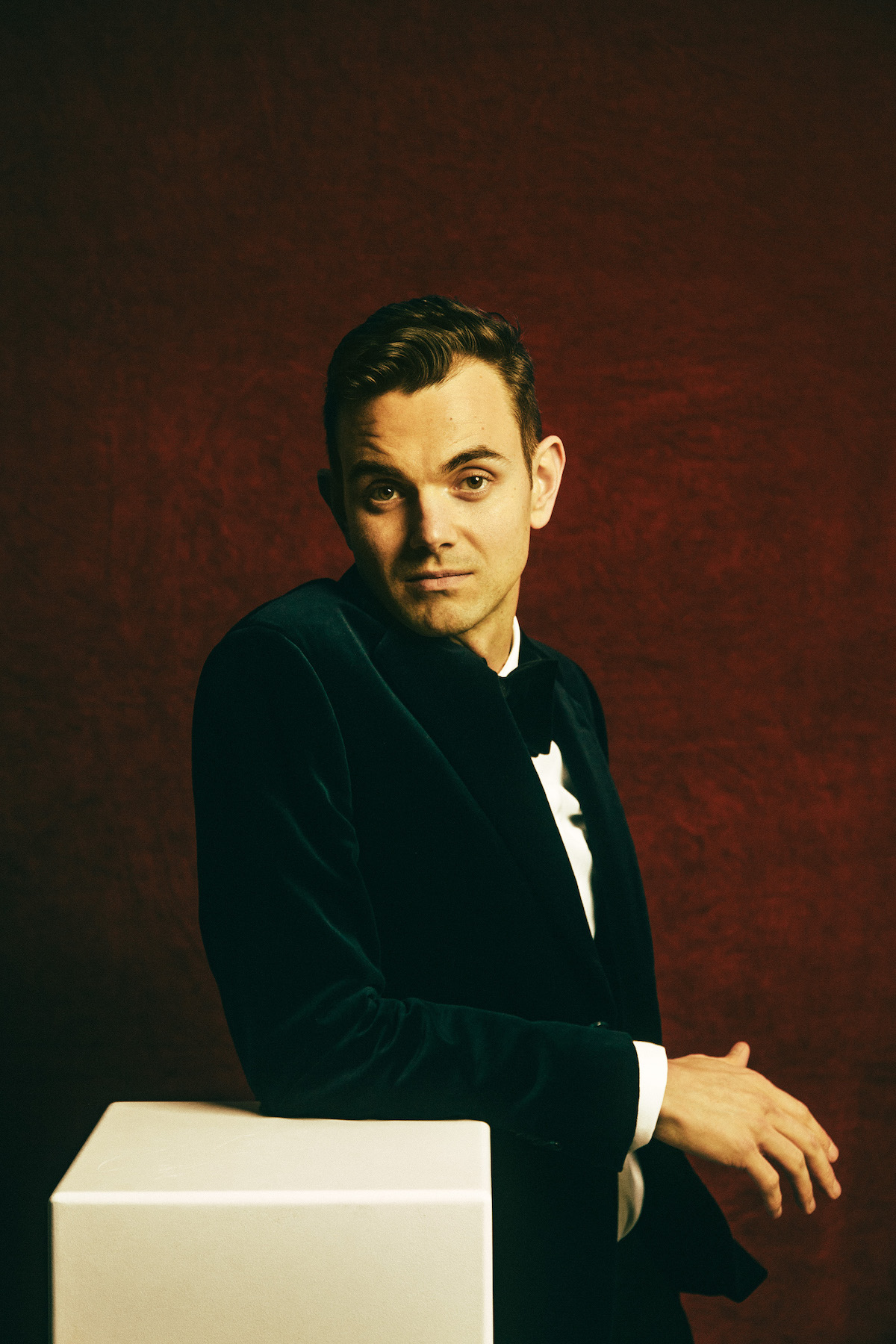
From its softly seductive entrance to its poignant, muted close, Golden Repair offers to its listeners a musical world free of distraction. #1 Dads dives unequivocally into topics like existence and purpose; he opines on opener “4bit,” “I was raised to make the best of all I have Now what’s my best good for? Ooh, for a four bit love…” And so begins this journey into a heart of light and darkness.
Your gaze is down, your face is red
There’s crystals forming in your eyes
The shadows swim in your pillow’s indent
Your blood’s all blue again
The lines dance on your favourite bedspread
You always like to straighten them out
I guess you got that from your dad
I feigned love to fall in it
I called a spade a spade and now I’m all ashamed
And I was raised to make the best of all I have
Now what’s my best good for?
Ooh, for a four bit love
Ooh, for a four bit love
Ooh, for a four bit love
And on and on we go
The record vacillates in energy and ambience throughout – with gracious, melodious highs in “Another Day” and the harmony-rich “Orion” counterbalanced by the hushed tones of “Run” and “Patience.” While memorable moments abound, lead single “Freedom Fighter” Golden Repair‘s indisputable highlight: Iansek offers a tranquilizing, soul-stirring experience through his visceral, soaring vocal melodies and emotional piano. Featured on Atwood Magazine’s 2020 Songs of the Year, it’s a song that calms the nerves and soothes the soul, while stirring awake something deep inside our bones.
Iansek breathes life into the darkness, tapping into pools of emotion with seamless ease and finesse. A song about transience and change, “Freedom Fighter” finds the humbled narrator reflecting on where he is at this present moment – in his career, in romance, and so on. He surges into a dazzling falsetto in the chorus, filling our hearts with wonder and our ears with warmth:
Even if I have it now
Doesn’t mean I’ll have it always
Patience isn’t funny now
It’ll keep you waiting all day
But, even if I have it now
Doesn’t mean I’ll have it always
Patience isn’t funny now (ooh)
The “Freedom Fighter” chorus proved something of a trusty mantra throughout 2020 – one which will surely continue into 2021: Even if you have it now, doesn’t mean you’ll have it always. These emotional, evocative words invite self-reflection on a record whose intimacy knows no bounds, and whose spirit and fortitude make for a continuously compelling release from start to finish.
Stunningly nuanced and achingly open, Golden Repair is a breathtakingly expansive, majestic listening experience. #1 Dads’ intimacy and vulnerability is unparalleled.
Iansek is unafraid of silence in his music, embracing space as a form of feeling and sound in and of itself. This willingness to span the sonic gamut lends Golden Repair a distinguished palette as the artist tackles everything from the life cycle and our temporal existence, to grappling with existential questions and our own personal demons. While we may come away with more questions than answers, Iansek nevertheless finds a way to assuage our heavy hearts and anxious souls.
Atwood Magazine spoke to Tom Iansek about embracing silence and space in his music, using songwriting as a kind of therapy, and all the vulnerability and emotion that went into #1 Dads’ Golden Repair. Dive deeper into #1 Dads’ music and artistry below, and discover why this record was named one of Atwood Magazine’s 2020 Albums of the Year!
— —
:: stream/purchase Golden Repair here ::
Stream: ‘Golden Repair’ – #1 Dads
A CONVERSATION WITH #1 DADS
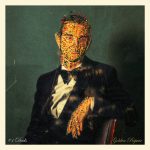
Atwood Magazine: Tom, I know #1 Dads was initially a sort of “side project” for you, compared to Big Scary. Do you still see it as such, or has that mentality changed over the years?
Tom Iansek: It has changed as I now feel that #1Dads is the main vessel for my creativity and self-expression whereas it used to be Big Scary. I feel #1Dads is a better fit for this as the project is just myself (creatively speaking); it also means that Big Scary can now be more of a collaborative effort, which makes sense seeing as there is more than myself in that band.
I’ve just always wanted to ask you this question… Why Dads and then #1 Dads? What is it about this name resonates with you?
Tom Iansek: Not too much to be honest, years ago I collected a bunch of potential names for this project and put them to vote on the Big Scary facebook page, Dads was highest voted so I had to go with that. Some years later I learned that there was another Dads that existed in the States, so I decided to become #1 to differentiate myself from them.
We’re closing in on ten years and three albums of #1 Dads. How has this project or artistry transformed in that time, especially with your latest album?
Tom Iansek: The project has had a beautiful innocence for me in its trajectory. It started as a way to capture my creative overflow, the ideas that Big Scary didn’t need or couldn’t do anything with. I initially had no hope or dreams for the project, which can be a very liberating thing. The second album had much of this energy where I felt very free to create whatever without much worry whether it was good or bad; the energy of creating for the fun of it. Releasing the music to the outside world was mostly motivated by the fun of it and so everything from then felt like a complete bonus. I more recently decided that I should take on the project in a more committed way (with the release of Golden Repair) and this changed the scope of the project with it somewhat (as I mentioned in previous comments) but I have strived to keep the innocent naissance of the project central to how I work within it.
I know Golden Repair is a very long time in the making. Can you share a little about the story behind this album?
Tom Iansek: It was mostly a long time in the making as I didn’t write any songs for the project for years. I started another project No Mono with a friend and that kept me occupied for a few years. Throughout that project I noticed things in my personal life changing: there was travel, moving houses and my wife fell pregnant with our first child. With this I felt a shift in myself creatively and so decided to put energy back into my older projects, primarily #1Dads. The actual writing and music making wasn’t too long once I got things going again, I wrote most of the material in one 10day getaway and then worked as hard as I could get as much of it recorded before our baby was born, which I managed to do pretty well. So the album grew from these major changes in my life, and as often accompanies major change there were difficulties and challenges, and so the songs became about this.
You described your album’s title, Golden Repair, as relating to “Kintsugi” and the art of celebrating the blemishes and emphasizing the cracks. Can you speak more about this and why that concept is important for you?
Tom Iansek: This flows on nicely from your previous question. As I mentioned my life at the time had a lot of breaking and re-making, with major changes a foot. It also speaks to my internal emotional landscape at the time which I could describe as turbulent. The album looks at this moving through difficulty and how you pick yourself up on the other side of it. My Dad, quite randomly mentioned this concept to me around the time I was wondering about a theme for the album, I looked it to it and felt it fit so perfectly.
As a result of these themes alone, Golden Repair feels so personal right off the bat - but your music is always deeply personal. How (it at all) was it different this time around?
Tom Iansek: It was different this time as I decided that #1 Dads would be the main vessel for my songwriting (as I mentioned earlier) and so it absorbed these most personal aspects of myself. There’s also a lot of myself in the stories of the songs, as I used songwriting as a kind of therapy, a way to process what I was going through, so I can imagine listening to them might feel like peering into my life. I did make an effort however to keep certain specific details from permeating the songs so that they could feel more relatable to someone listening, rather than just about me.
There’s also a lot of myself in the stories of the songs, as I used songwriting as a kind of therapy, a way to process what I was going through.
One thing I absolutely love about this album is how it feels so singular in nature; as if all the songs, like puzzle pieces, fit just right. How do you feel this record captures your artistry?
Tom Iansek: This comment helps confirm my trust in my creative process, thank you. I try and allow the songs to ‘lead’ me as much as I ‘lead’ them, as in I try and let them take me where they want me to go while I simultaneously carry them toward finished versions of themselves. With this there has to be a certain level of trust in the unknown of what you’re extracting. The songs that are on this album are the only songs I wrote for it (with the exception of maybe one other that I wrote but didn’t end up recording), was it going to be enough to create a full and satisfying album? I had to trust that it was.
Can you describe this album in three words?
Tom Iansek: Me. You. Healing.
You weave a very subdued, majestic blend of what I’d call “indie folk,” with a dash of pop and rock, on this album. When it comes to this record’s musicality, what was on your mind? What were your goals?
Tom Iansek: I had a sense that I wanted the songs to be ‘gentle’, of not wanting to force themselves on anyone. I also felt they wanted ‘less’, just the bare minimum to help them come to life, with nothing superfluous. This probably explains why there is quite a bit of solo piano or guitar and vocals. Beyond this it was the individual songs and their own personalities that shaped the album, they’re what created its contours and then I just moved the bits around until they felt they were in their most natural order, and then the album was done!
You open with this gorgeous, ghostly tapestry of reflection, “4bit.” Why begin the album in this way?
Tom Iansek: It’s by far the darkest song on the record and I just couldn’t find any other place where it felt comfortable. With much of the album being about healing, I felt that having this darkest element at the start gave it this arc, and this flow from dark to light which felt right. It’s also works like an introduction too, with album starting on track 2 with “Another Day”. It was probably also a way to acknowledge where I was (emotionally) at the time of writing (where darkness was omnipresent to a greater or lesser degree).
I’ve personally returned to “Freedom Fighter” many, many times throughout this year. It’s so packed with both anxious and soothing emotion, that it’s a rollercoaster to really experience. I’d love to hear more about that song’s creation and what went into it.
Tom Iansek: The lyrics from this were more of ‘flow state’ type writing experience, as in I just tried to let them flow onto page without interrupting or trying to manipulate them too much. I remember as I was coming up with the melodies I just kind of mumbled the words “Even if I have it now, doesn’t mean I’ll have it always” and I really liked it, and just built back from there. There’s no ‘lessons’ as such I’m trying to instill in the song, just me coming to terms with where I was at, at the time of writing, and this feeling of ever-present change and realising that whatever it was that was difficult was only ever temporary.
I’m still brought to silence by your chorus, again speaking about “Freedom Fighter”. “Silence is the perfect sound... Even if I have it now doesn’t mean I'll have it always.” What is it about these themes that you find compelling? I guess, what drives you to explore this, do you think?
Tom Iansek: I guess the previous answer speaks to this quite well. I will add that something that has long permeated my songwriting has been this sense of ‘opposites’ and how we exist in-between them somehow, whatever that means. This idea that there is silence and sound and that the song exists in-between them somehow. ‘But a song is all sound!’ I hear you say, well yes but I would add that it is a much about what you don’t play as what you do play often. What were we talking about again??
You continue to explore both death in “Run” and so on. This topic is hard enough to think about, let alone write and sing. Did you have any intent when putting thoughts to words; what were you looking to convey or explore?
Tom Iansek: My wife and I found out we were expecting our first baby exactly one year after my wife’s mum passed away. And so this song is about that, not only the uncanny timing which seems to link these two events but the cycle of death and new life.
I’m really taken with songs like “Patience” and “Elizabeth.” They are both so intimate and vulnerable, and I would add “majestic” pieces – a total unveiling, I think, and I think that’s because they embrace silence. So I’d like to talk about silence and its place for you in your music, and on this album.
Tom Iansek: Again, funny we spoke about this just earlier. As I said, Silence was somewhat of a key theme, existing between the two poles of nothingness and something-ness. These songs also embrace the ‘less is more’ thing that I was speaking about earlier too, just having the minimum they need to survive.
Is silence challenging? Is it the default, and is music the disruption? How do you see these forces interacting?
Tom Iansek: It is one of the great mysteries! The songs were a way for me to marvel at this great question. In short, I have no idea, but the more I go deeper into music, songwriting, and even just in living my life, the more I feel there is a profound power in silence; that it’s like the place where all sound originates. Creatively speaking, I try where I can, to be creative from a place of silence, this mostly just means quieting my mind the best I can, as I’ve found this to produce the best results.
The more I go deeper into music, songwriting, and even just in living my life, the more I feel there is a profound power in silence; that it’s like the place where all sound originates.
Were any songs for this album particularly challenging or difficult for you to capture? If so, which?
Tom Iansek: As it had been quite a few years since I had previously written as song entirely by myself I tried not labour over any of the songs too much, and where ideas or songs seemed to have some difficulty in coming forward I just abandoned those. In this way all of the songs (that are on the album) came quite easily, the hardest part was probably recording vocals as I have a tendency to write melodies that are near the top of my range, then when I actually record them I can be difficult to perform them properly.
Personally (just one person’s opinion) I feel like this is your most cohesive #1 Dads record. How do you feel you grew as a result of Golden Repair? Now that we’re some months out from its release, how has your relationship with the album changed?
Tom Iansek: To be honest, once this album came out I moved on from it quite quickly. I don’t really reflect on it, I think instead about where I would like to go next creatively, and whatever I move onto next. Whatever this album bought me, in terms of my own growth happened largely during the making of it. The album at the time was kinda a creative by-product of my own emotional processing (which I spoke about earlier), I used it like therapy, so it’s kinda like a momento of my growth through that period.
Do any songs off the album continue to resonate with particular strength for you? If so, which ones and why?
Tom Iansek: “Orion” is one that is perhaps most timeless to me, it asks the best question in the most interesting way. Lyrically, it best captures that sense of great mystery we were talking about earlier, more than any of the other songs.
I feel it in my brain
I feel it in my lungs
I feel it in my fingers they play
They play ‘til they’re done
You can pick up the fight
You can set it alight
You can use all your might
All of it is alright
I feel it my kitchen
I feel it in my car
I feel on my way to work
Everywhere that you are
You can shout at the night
To your feeling’s delight
You can break all the pieces
All of it is alright
You can feel it inside
That everyone is a light
And every star here tonight
Every star is Orion’s
Listening back with fresh ears, what are you most proud of (or impressed) about this album?
Tom Iansek: Funnily this album, way more than any other music our baby hears, is super soothing to him. There has been countless times when he’s been cracking it and we’ve put this album on and it’s calmed him instantly. This probably what I’m most impressed by!
Are you still finding yourself inspired by the same themes that billow throughout Golden Repair, or do you feel like you’ve moved on to other topics?
Tom Iansek: I’ve since done a little songwriting and found that there are some things I return to quite naturally, like the idea of opposites, and new places I’d like to explore. I find myself in my art always using what I’ve previously done as a departure point. That said I feel that songwriting will nearly always hold a place as something therapeutic in my life, as a way to process and sort through.
Finally, what do you hope others take away from this album?
Tom Iansek: I hope that they see fragments of themselves in the songs and can relate personally, and in this way perhaps some of the therapeutic energy of the songs can work in the listeners also. I hope that it can spark something in a listener, anything is good, even boredom or displeasure. I hope it can create some sort of movement for a listener, the asking of a question, a discussion.
— —
:: stream/purchase Golden Repair here ::
— — — —

Connect to #1 Dads on
Facebook, Twitter, Instagram
Discover new music on Atwood Magazine
art © Jeff Andersen Jnr. painting © Tom Iansek
:: Stream #1 Dads ::

